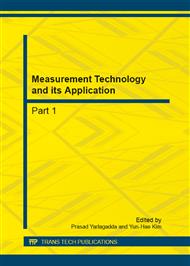p.1611
p.1615
p.1619
p.1624
p.1628
p.1633
p.1637
p.1641
p.1645
Exploring the Learning Effectiveness of Students with Different Free Choice Cooperative Learning Values: Taking Example of how Operating Optical Time-Domain Reflect Meter Tackle the Optical Fiber Circuit Measurement Problem
Abstract:
This research is aimed at exploring the learning effectiveness of students with different free choice cooperative learning values. And to understand the learning condition of students who operate Optical Time-Domain Reflect meter to tackle the optical fiber circuit measurement. The research findings showed that : (A) Students in the high-scoring and low-scoring group with free choice cooperative learning value created a prominent difference of learning effectiveness on how they operated OTDR to tackle the optical fiber circuit measurement problem in the learning situation of free choice cooperative learning;(B) students in the high-scoring group with free choice cooperative learning value produced a discussion content with more advanced operation skills in free choice cooperative learning situation. It manifests that there is a prominent difference of the active learning effectiveness on students in high-scoring group (cooperative sharing category) with free choice cooperative learning value compared to students in low-scoring group (individual competitive category) due to the free choice cooperative learning situation, and the content of discussion on advanced operation skill also reached a prominent difference.
Info:
Periodical:
Pages:
1628-1632
Citation:
Online since:
December 2012
Authors:
Price:
Сopyright:
© 2013 Trans Tech Publications Ltd. All Rights Reserved
Share:
Citation:


